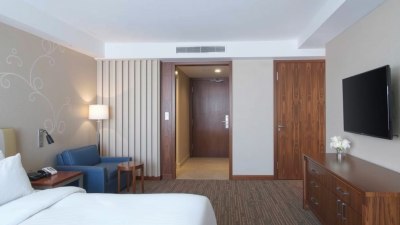Why Slow Travel Is Better for Your Health and Well-Being
Discover how slow travel enhances mental and physical health while enriching your travel experiences.

This image was created with the assistance of Freepik
In today's fast-paced world, where everything is about instant gratification and rapid travel, the concept of slow travel has emerged as a refreshing alternative that not only enriches the way we experience new cultures but also significantly contributes to our overall health and well-being. Rather than rushing from one tourist hotspot to another, slow travel encourages us to immerse ourselves in the local environment, engage with the community, and foster a deeper connection to our surroundings. This article explores why slow travel is better for your health and well-being, examining its psychological, physical, and social benefits in detail.
The Essence of Slow Travel
At its core, slow travel is about taking the time to enjoy the journey rather than merely focusing on the destination. It promotes a more mindful approach to travel, allowing individuals to appreciate local customs, cuisine, and history at a more profound level. This concept is founded on the principles of sustainability, consciousness, and the enriching experience of living like a local.
Psychological Benefits
One of the key psychological benefits of slow travel is its ability to reduce stress. Vacationing tends to become a source of anxiety when one is bombarded with tight schedules, deadlines, and a feeling of needing to 'see it all.' In contrast, slow travel encourages travelers to take their time and fully embrace their surroundings without pressure. Studies have shown that individuals who travel slowly experience lower cortisol levels, resulting in enhanced relaxation and peace of mind.
Furthermore, slow travel encourages mindfulness, a practice that involves being wholly present in the moment. This mindfulness fosters appreciation for the little things often overlooked in a hurried travel experience, such as the beauty of a sunset or the richness of a conversation with a local. Research highlights that mindfulness can reduce anxiety and improve overall mental health, making slow travel an excellent choice for those looking to rejuvenate their spirits.
Enhancing Emotional Connections
Slow travel is also about building deeper emotional connections, not just with the places you visit but with the people you meet along the way. Interacting with locals can create meaningful relationships that transform your travel experience, fostering a sense of belonging and community. Such connections can enhance feelings of happiness and fulfillment, which are vital for overall well-being.
Additionally, when travelers engage in small, local events — such as a cooking class or a community festival — they gain a more nuanced understanding of the culture, leading to a richer appreciation for the diversity of human experience. This emotional engagement can lead to increased self-awareness and emotional intelligence, promoting mental wellness.
Physical Health Benefits
Beyond the psychological impacts, slow travel also promotes better physical health. One of the most significant advantages is the increased opportunity for physical activity. Instead of spending long hours in transit or hopping from one sight to another via car or bus, slow travelers often walk, bike, or hike to their destinations. This not only enhances cardiovascular health but also promotes weight loss, improves muscular strength, and boosts overall energy levels.
Moreover, taking the time to find local food markets and dining in neighborhood restaurants rather than eating fast food or pre-packaged meals can lead to healthier eating habits. Slow travel encourages the consumption of fresh, local produce which is often more nutritious than processed food. By focusing on healthy eating and physical activity, travelers can return home feeling revitalized and inspired to maintain these healthy habits in their daily life.
Improved Sleep Patterns
Another benefit of slow travel is the potential for enhanced sleep quality. Rushing around with packed itineraries tends to lead to exhaustion and irregular sleep patterns. However, slow travel allows for a more balanced routine. With fewer obligations, travelers are more likely to find time to relax, enjoy leisurely meals, and participate in calming activities such as meditation or yoga. The cumulative effect of these practices contributes to better sleep health.
Cultural Immersion and Brain Health
Engaging with different cultures can also lead to cognitive benefits. When travelers immerse themselves in new cultures, their brains are challenged to adapt and learn. This continual mental stimulation can help prevent cognitive decline as we age. Learning a few phrases in the local language or understanding cultural traditions can keep the mind sharp and engaged.
Moreover, the exposure to diverse perspectives enables travelers to appreciate differences and foster empathy. This global outlook enriches personal growth, challenges preconceived notions, and can lead to constructive thinking. All these factors combined can improve mental agility and cognitive flexibility.
The Role of Nature in Slow Travel
Nature plays a pivotal role in the slow travel movement. Many slow travelers prioritize visiting natural landscapes, whether it’s hiking in the mountains, walking along serene beaches, or exploring national parks. Engaging with nature has been widely studied and is known to lower stress, enhance mood, and promote relaxation. Even short doses of nature exposure can significantly boost mental health and overall well-being.
Moreover, spending more time outdoors encourages physical activity and reduces sedentary behavior, which is linked to various health issues. The combination of exercise, fresh air, and natural beauty significantly boosts psychological health and invites a sense of tranquility and serenity.
Social Interactions
The emphasis on authentic experiences in slow travel also fosters rich social interactions. By spending more time in one place, travelers can form relationships with locals and fellow travelers, which can enhance feelings of social connectedness. Research highlights that strong social ties are a crucial component of happiness and can improve life satisfaction.
Participating in community events or volunteering with local organizations is another way to create meaningful social interactions. Such activities not only provide travelers with a sense of purpose but also promote altruistic behavior, which is correlated with improved mental health.
Contributing to Sustainable Tourism
Slow travel often aligns with the principles of sustainable tourism, promoting respect for local customs and the environment. Rather than contributing to overcrowding or over-consumption, slow travelers typically engage in practices that support local economies, use environmentally friendly accommodations, and minimize their carbon footprint. This conscientious approach to travel can lead to a greater sense of fulfillment and moral satisfaction, knowing that one's travel decisions are helping rather than harming.
Planning Your Slow Travel Experience
Planning a slow travel experience does not necessarily require extensive preparation; however, a few key strategies can enhance your journey. First, choose destinations that offer a rich cultural and natural landscape. Look for places that encourage exploration and have local experiences available. Secondly, structure your itinerary with flexibility in mind. Allow time for spontaneous adventures or rest days, as these often lead to the most memorable experiences.
Consider modes of transport that encourage a slower pace, such as trains, bicycles, or hiking, which provide the opportunity for more immersive sightseeing. Finally, focus on quality over quantity; instead of trying to visit multiple attractions, select a few key experiences that resonate with you.
In essence, slow travel is more than just a way to see the world — it's a lifestyle choice that prioritizes mental, emotional, and physical health. By taking the time to appreciate new places fully, engaging with local communities, and fostering meaningful connections, travelers not only enrich their travel experiences but also contribute positively to their overall well-being. In a world eager for instant gratification, slow travel reminds us that sometimes the best journeys are the ones taken at a leisurely pace.











